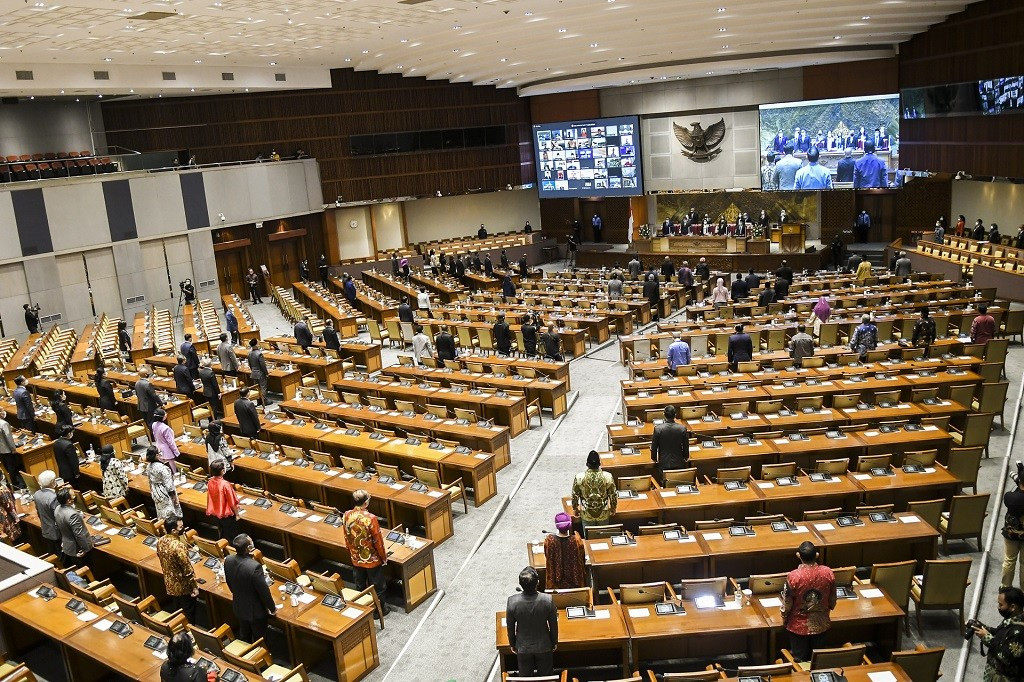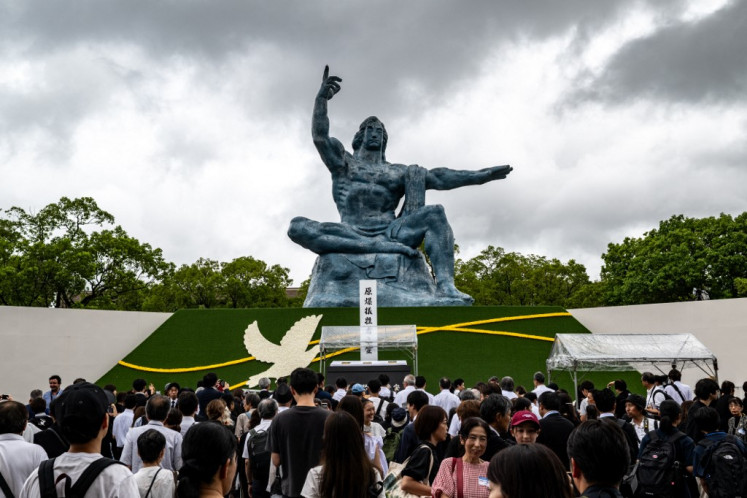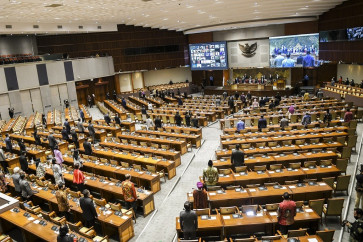Popular Reads
Top Results
Can't find what you're looking for?
View all search resultsPopular Reads
Top Results
Can't find what you're looking for?
View all search resultsAnalysis: New omnibus finance bill to allow politicians to govern BI
Change text size
Gift Premium Articles
to Anyone
T
he House of Representatives concluded a plenary meeting on Sept. 20 establishing the omnibus bill on financial sector reform as a parliament-proposed bill. The bill introduces considerable changes from the initial draft proposed by the government in collaboration with the parliament in 2020, some of which are highly contentious.
One of the most contentious changes in the final draft is the qualifications set for Bank Indonesia’s (BI) board of governors. The requirements and disqualifiers for governor candidates are regulated under Law no. 23/1999 on BI. Within that law, article 47 has three clauses, with clause c specifically stating that “administrators or members of a political party cannot join the BI board of governors”. The new omnibus bill draft plans to strike clause c from the law, allowing politicians to govern the central bank.
This change was immediately opposed by many economists and academics for several reasons, in particular for the potential for conflict of interest. A politician has an inherent obligation to work in the interests of their political party, which is evident in Indonesia’s history. Prior to BI reforms in 2004, the central bank was an institution under the government and monetary policy was used as a political tool.
This new change adds fire to the longstanding concerns that the omnibus bill would reduce the independence of financial regulators in the Financial System Stability Committee (KSSK). In the early 2020 draft of the omnibus bill, the authority of the finance minister would be increased from coordinator to committee chair, giving the supervisory role to the Financial Services Authority (OJK) and the Indonesian Deposit Insurance Corporation (LPS).
If the bill passes then the LPS would need its annual budget and workplan to be approved by the financial minister, while the OJK would need its annual budget and workplan to be discussed with the government and, through representation by the minister, approved by the House. (Read: Omnibus finance bill draft reduces BI, OJK, LPS independence)
Contentious changes to the omnibus bill do not end there. Aside from reducing the independence of financial regulators, the new bill draft would also directly affect the commercial sector by applying stricter regulations on banks.
The bill draft proposed in 2020 added article 8A to law no. 7/1992 on banks, which mandates that commercial banks must adjust their interest rate thresholds within seven days after BI sets its targeted interest rate. The most recent draft by the House Commission XI, which oversees financial affairs, has removed the seven-day deadline and leaves it to be regulated by a new OJK regulation. There is no indication how long the time limit will be set in the planned OJK regulation, but bankers are expecting a much wider space since the estimated average time it takes for banks to adopt BI’s interest rates when left to market mechanisms ranges between three to six months.



















